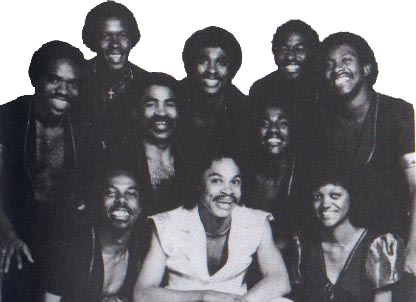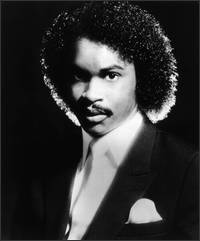
|
| Zapp in the early 80s with Roger Troutman in the front. |
| The
Flashlight
Listing of Past Flashlight Features |
"So Ruff, So Tuff"
The Story of Roger Troutman & Zapp |

|
| Zapp in the early 80s with Roger Troutman in the front. |


"In my years in show business I have yet to meet a gentleman who has shown such a divine interest in his fellow man. It seems as if George Clinton, no matter how much success he realizes, always remembers how important it is to be kind to other people and how to reach back into the community and do what he can in any way he can for others. His humility never ceases to surprise me and his ability to radiate love, respect, and understanding never ceases to inspire me. I really hope be lives to be a million years old and may God bless him and keep him for he is indeed the "Father of Funk", George I love you, and thanks. "


"Thanks also to George Clinton and Bootsy Collins. No matter our differences, I still love and respect you both. I am ever grateful for your faith in my talent. May all good come to you."
See recommended Roger and Zapp albums here.
Webmaster's note:
Roger Troutman and his brother Larry passed away on April 25, 1999. The
following account is courtesy of the Electronic Urban Report:
"The music industry and funk fans worldwide are mourning the death of funkmiester supreme Roger Troutman, on Sunday, April 25, 1999 in Dayton, Ohio. Roger, a member of the duo Roger and Zapp, was killed in what authorities believe was a murder suicide by his brother, Larry Troutman. Reports say Roger was found in back of his recording studio and was rushed to Good Samaritan Hospital where he died of multiple gunshot wounds while in surgery. His brother was found several blocks away in a car (police say matched the description of one leaving the crime scene) with a bullet in his head. "
"Services for the Troutmans (were) held (Saturday, May 1st, 1999) in Dayton Ohio. Recapping the story...Roger Troutman, 47, was shot and killed by older brother, Larry, 54, last Sunday morning. Larry later shot himself in the head, police say. At this point, it's not exactly clear why Larry shot Roger, but stories are beginning to surface that say Roger was in the process of pulling away from Larry, who acted as his manager, and going in a different direction. Supposedly, this was not something that Larry wanted to hear and for several months there had been friction between the two. Speculation is that this is what ultimately led to the killing. But as we've said, Roger affected a lot of people through his music and personally. He made a point to literally reach out and touch his fans... "


© 1999, A Parliafunkadelicnet Thang